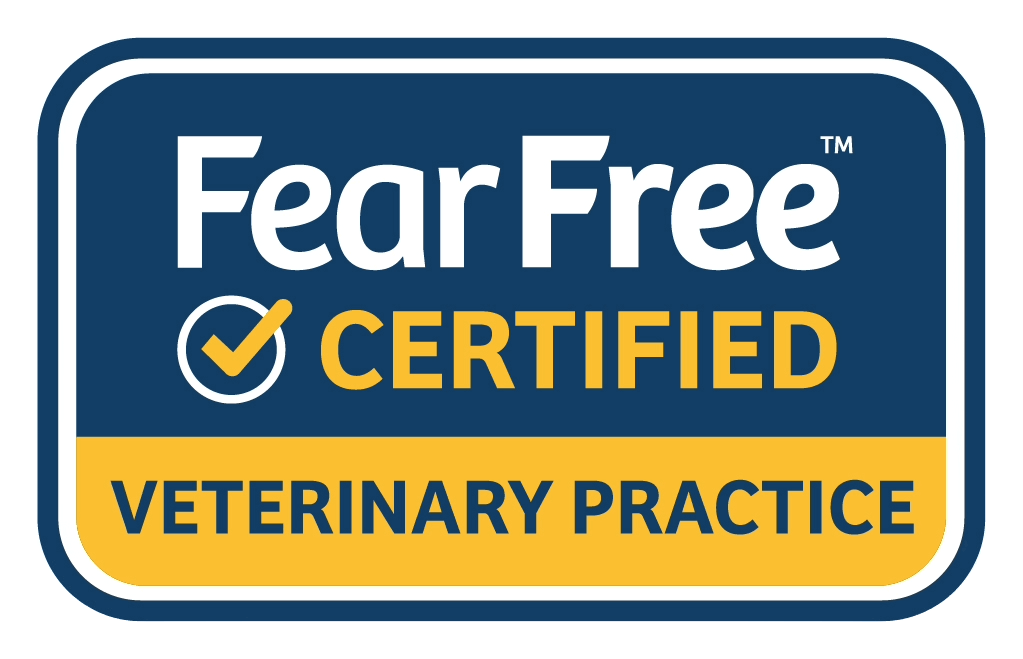IMPORTANT: Have you completed your Surgical / Anesthesia Consent Form?
Click here to fill it out!
Preanesthetic Patient Care Plan for Cats
Our goal for your cat is to have a safe, fear free, comfortable anesthetic experience and gentle recovery. We know that anesthesia can be scary for both you and your pet. We want to partner with you and ask you to help us with our goal.
How To Reduce Fear, Anxiety and Stress
Fear, anxiety and stress in your cat can directly affect anesthesia safety and increase complications. In our experience, pet parents sometimes do not see the level of fear, anxiety, and stress that we are trained to see. Specifically, most cats do not like change and can be frightened coming into the hospital. We know that asking pet parents to follow our preanesthetic care plan can require more from you; however, you are part of our team. By following our guidelines, you are helping our healthcare team, help your pet.
Cats being naturally sensitive require special consideration when coming into our hospital for general anesthesia. Here’s our plan:
Traveling To The Hospital
- Get your cat familiar with the carrier days before the visit.
- Offer meals to your cat in the carrier.
- Remove the top of the career if your cat will not enter with it on
- Make sure the carrier is large enough for your cat to turn around inside.
- Place a towel that has cat’s scent in the carrier.
- Wipe/spray the interior of the carrier with a Feliway wipe or spray 15 minutes prior to departure. After wiping, tuck wipe under the towel for additional benefit. (Feliway wipes may be intermittently available)
- Cool or warm car (depending on temperature outside) before placing cat into vehicle.
- Consider playing classical/calming music.
See below our Fear Free Trip-to-the-Veterinary Hospital Video about getting your cat to the hospital.
Admission
Admission time is between 7:30am-8:00am. Frequently, our team accommodates our clients and patients with different admission times. Please follow the time that was verified with you verbally. We ask that you allow 15-30 minutes for the admission process so that the nurse on duty can complete all necessary paperwork and answer any questions you may have.
Calming Medications
Our complimentary Preanesthetic PURRfection Calming Kit has been provided to ensure that you are successful in providing calming therapy.
Our veterinarians have prescribed a sedative called gabapentin. This medication is extremely safe and gentle for cats. Gabapentin will help your cat feel more relaxed traveling to the hospital and while waiting for their procedure. Cats need to get their gabapentin 2-3 hours prior to traveling to the hospital. This means you may have to get up a little early to ensure your cat gets this medication at the proper time.
Medication can be offered in a small amount (around 1 tablespoon) of pate consistency cat food, meat baby food, or Churo is encouraged. We also recommend adding Purina Fortiflora as a “flavor” enhancer. Please do not give more than this small amount of food the morning of anesthesia. This means do not feed a full meal as a fasted patient is required for general anesthesia. Cats have no limitations on water before procedures.
If we already know that your cat has high levels of fear, anxiety, and stress in our hospital, we may recommend giving a “boost” dosage of this medication the night before AND morning of the procedure.
Medications to discontinue prior to anesthesia
Enalapril, benazepril, or amlodipine. These lower blood pressure. We need to control blood pressure under anesthesia and these medications can interfere with normal blood pressure. Please discontinue these medications 1 day prior to anesthesia. After the procedure, these medications need to be resumed at normal routine dosing times.
Pain Medications, Antibiotics, and Seizure Medications
Please do not skip these medications. If your cat has been prescribed any of the above categories of drugs, please continue normally.
Discharge
Cats undergoing anesthetic procedures such as dental cleanings, oral surgery, tumor removal, spays, and neuters go home the same day. In special circumstances, such as emergency or complex surgery, your cat may need to be transferred to a 24-hour facility. On discharge you will be given oral and written discharge instructions. Again, please allow 15-30 minutes for discharge so we can go over at-home care and any medications we may be sending home.
How to Manage a Fear Free Return Home
We know that patients often need a quiet place to continue their recovery at home. We encourage you to keep your cat in their carrier when you get home. Place the carrier in a quiet room away from other pets and small children. Open the carrier and allow your cat to come out on its own when ready.
Offer food and water only when your cat is walking steadily on their own and able to stand normally to eat. Offer pet’s regular diet initially.
If your pet will not eat in the first 12 hours after returning home. Encourage eating by offering “yummy” foods such as Fancy Feast, meat baby foods, or other known favorites. Getting your cat to eat anything is more important than their regular diet.
Multi-cat household
Read this helpful article from Fear Free - How To Reintroduce Your Cat To A Companion Cat After A Hospital Visit
After Hours Access to our Healthcare Team
to help reduce your fear, anxiety, and stress
If you return home and have questions about your cat’s behavior or incision concerns, we’re here for you. We invite you to download the Anipanion Pet App to your smart phone today. This is complimentary service for our post-operative patients up to 1-week post-op.
If you feel your pet is having a true emergency, take your cat immediately to the nearest veterinary emergency room at Nashville Veterinary Specialist at (615) 386-0107 or Blue Pearl (615) 333-1212.
Thank you for allowing the Blue Oasis Pet Hospital team to care for your cat!



